Modern food trucks are red-hot additions to the Klang Valley’s dining scene
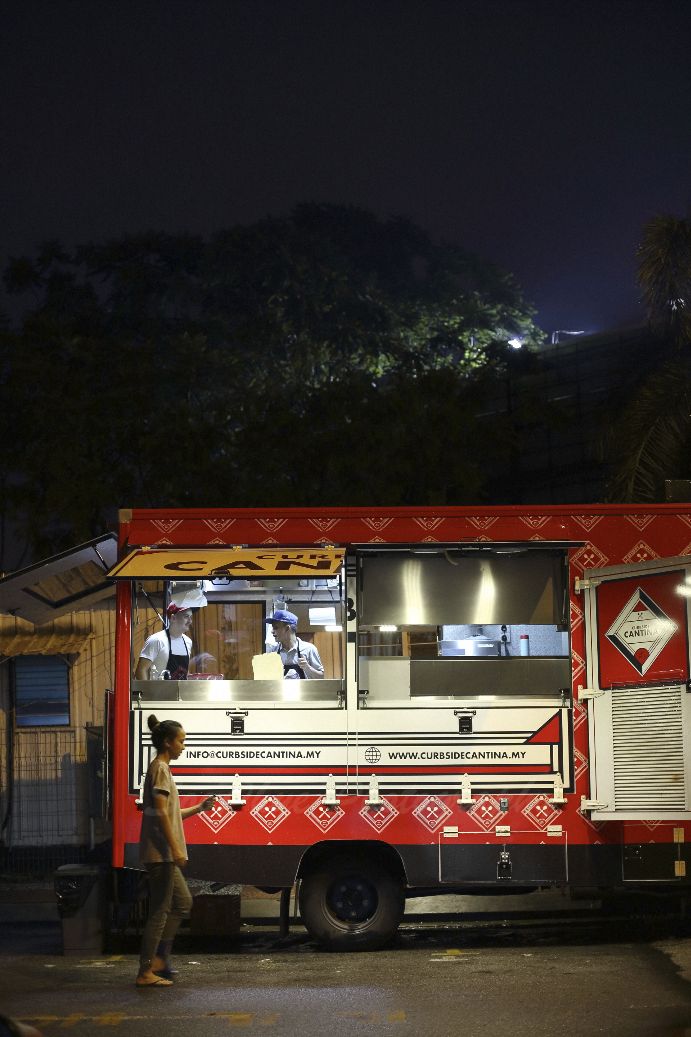
Every night except for Tuesdays, a black truck pulls into a parking bay in the suburb of Subang Jaya. Its sides swing open, plastic tables and chairs are arranged around the vehicle, and a gas stove is started up. The smell of delicious food comes wafting out. The Little Fat Duck is open for business, from 8pm to midnight, offering pasta at less than USD2 a pop and a fork-tender chicken confit, braised for 24 hours to flavourful perfection, for about USD3.50 each.
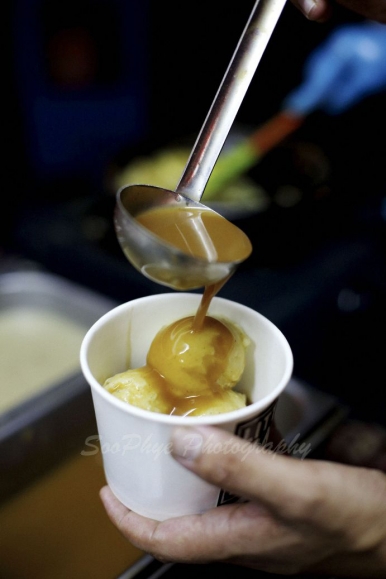
Malaysians are not unfamiliar with food trucks, having had their beloved rojak, cendol and char kway teow from out of the back of these vehicles. But the second wave of this culinary venture takes the food to a different level. The modern food truck offers French, Italian and Mexican cuisine, served in recyclable boxes and at affordable prices. It’s a food scene that’s growing as more trucks join the brigade, lured by cheaper start-up costs and the freedom to try out new concepts that a brick-and-mortar restaurant cannot afford.
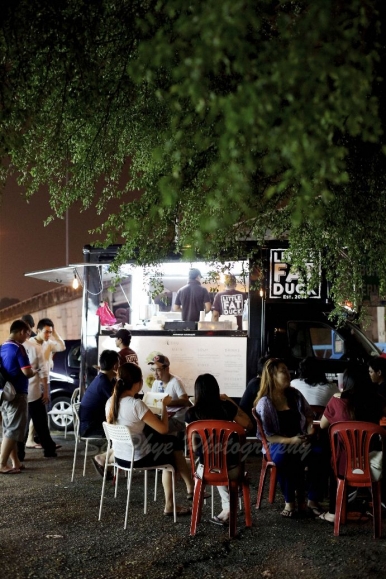
Little Fat Duck (facebook.com/littlefatduckmalaysia) owners Adel bin Muhamed Ishak and his partner Adi Ong didn’t have any F&B or cooking experience before venturing into the food truck business. Adel comes from a public relations and marketing background, while Adi was dealing in other businesses. When a mutual friend wanted to get rid of his food truck, previously used to service travelling circuses, the pair jumped at the opportunity to start something of their own. Adel borrowed his mother’s recipe for bolognaise, and the rest they experimented and tested on friends. Their aglio oglio and chicken confit are now bestsellers.
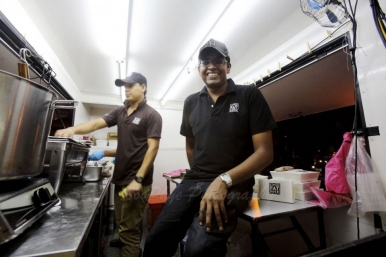
“On the first day, we didn’t know how to store the food properly in the truck. We drove about 100 metres and all the pasta sauces fell on the floor. It was a mess!” recounts Adel, who now speaks with the wisdom of the experienced. The learning curve may have been steep, but Little Fat Duck now enjoys a popular following.
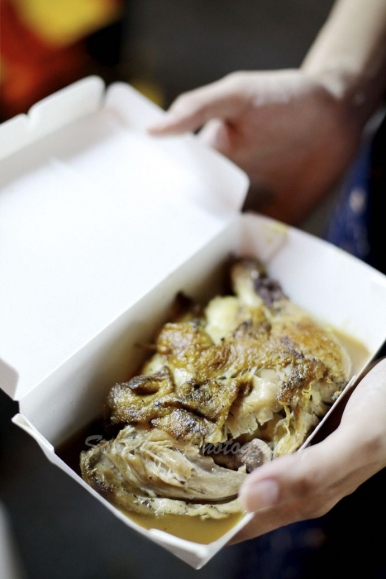
As we are chatting, the La Famiglia truck drives past to set up its operations in another part of the area. The concept of this truck was inspired by the movie The Godfather, and its menu revolves around six different pasta dishes, with a side order of wedges or fries.
La Famiglia (facebook.com/vivalafamiglia) has two shifts: Nights are at Subang from 9pm to 1am, and at lunchtime, the truck is in Damansara Heights, servicing students and office workers. Co-owner Syazwan bin Khairuddin operates the nearby Gloria Jeans outlet in Menara I & P, and he works long hours servicing the two businesses. “One of my biggest challenges is manpower because of the two shifts. By the time I’ve closed for the night and am done cleaning up, it’s four in the morning,” says Syazwan.
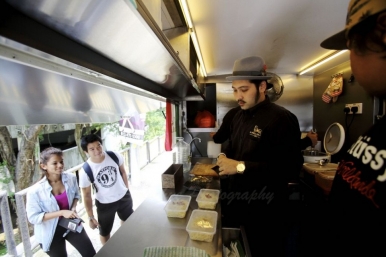
Meanwhile, Curbside Cantina (instagram.com/curbsidecantinakl) is a newcomer to the food truck scene, but the husband-and-wife team helming the operations has been in the food and beverage business for years. Awangku Irawan and Noreen Ramli owned a restaurant, The Pink Sage, before closing that to shift their attention to cocktail-type catering.
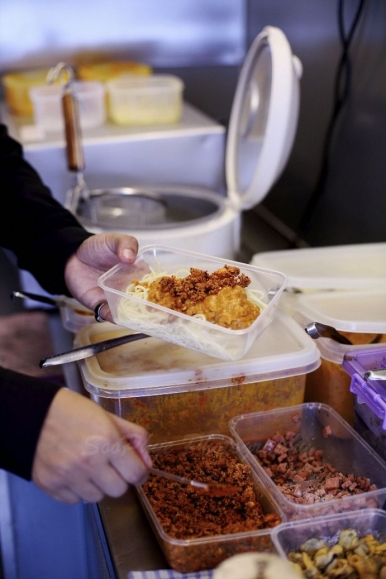
According to Noreen, their food truck, which sells Mexican food, is a natural extension of their existing catering business. Business has been good since they started operations in June last year. “The response has been really great. People from all walks of life have been so keen,” says Noreen.
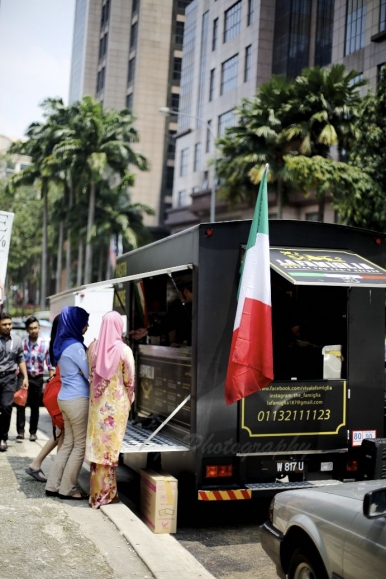
The chicken quesa-taco is their best-selling item, while the fish tacos are a throwback from their old operations. “Our former customers kept asking for them, so we listened, and fish tacos are back on the menu,” says Noreen. While Curbside Cantina can be spotted in Kuala Lumpur’s Bangsar area, it keeps an irregular schedule. Fans follow the cheery chilli-red truck on Instagram.
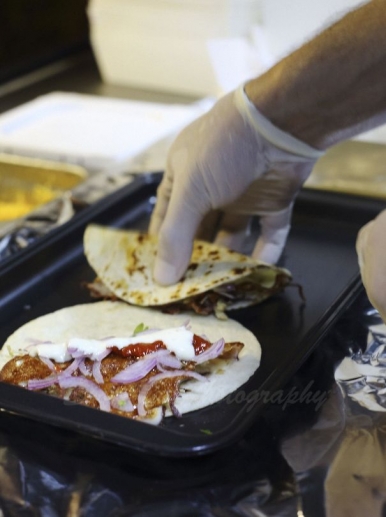
Similarly, Dina Blazevic operated two restaurants – Czech eatery Dubrovnik and the Amadeus bistro – before launching Flaming Wheels. Custom-made into the likes of a muscular monster truck, the kitchen in its metallic belly whips up gastronomic Western and Asian specialties for an appreciative crowd. Among its offerings are Baronne’s penne chicken parmigiana, chilli beef nachos and Guy’s Lamb Meatballs.
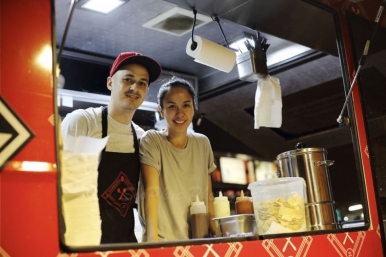
Flaming Wheels (myflamingwheels.com) can be found in different university campuses outside the city on weekdays; its whereabouts are published on Facebook, Twitter and a website. Weekends are usually spent at different events or private functions. Its kitchen can cater to 1,000 people.
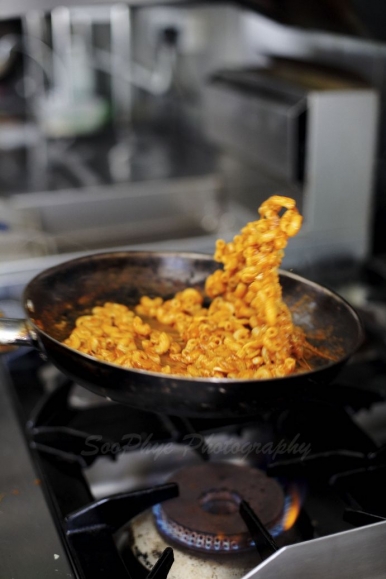
“When we started, there were not many food trucks, but now they are slowly coming up. It’s a good time as Kuala Lumpur is expanding rapidly and there are many locations without many eateries around. Also people are looking for more affordable food, but without compromising the quality. On the food truck you can achieve this as your fixed costs are much lower than a restaurant,” says Blazevic.
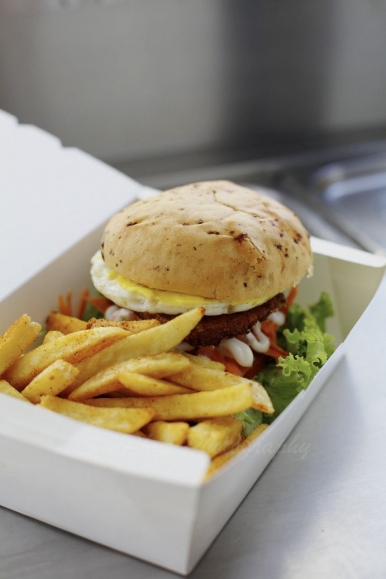
Challenges abound however. Good parking spots, permit issues and bad weather are the main concerns, not to mention truck breakdowns and accidents. The latest spate of monsoonal rain means the food trucks cannot operate at their regular time slots. Curbside Cantina circumvents this problem by shifting their operations from dinner to lunch, while they continue to cater for events at nights.
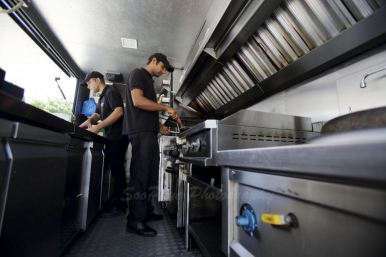
For some, the cost of running a food truck outweighs its positives. Alan Yeo’s Oishi Bento, offering bento boxes, lasted a year before he called it quits with his regular rounds. He now concentrates on his new undertaking, a permanent outlet called Big Hug Burger (facebook.com/BigHugBurgers), and the truck is a marketing extension of his business, servicing festivals and events around town.
For others, the food truck is a stepping stone to bigger culinary adventures. One of the food truck pioneers, The Humble Chef, swapped the truck for a brick-and-mortar café in Damansara Heights. Little Fat Duck is opening a kiosk in Mid Valley Megamall, a large shopping mall, and launching a second food truck.





